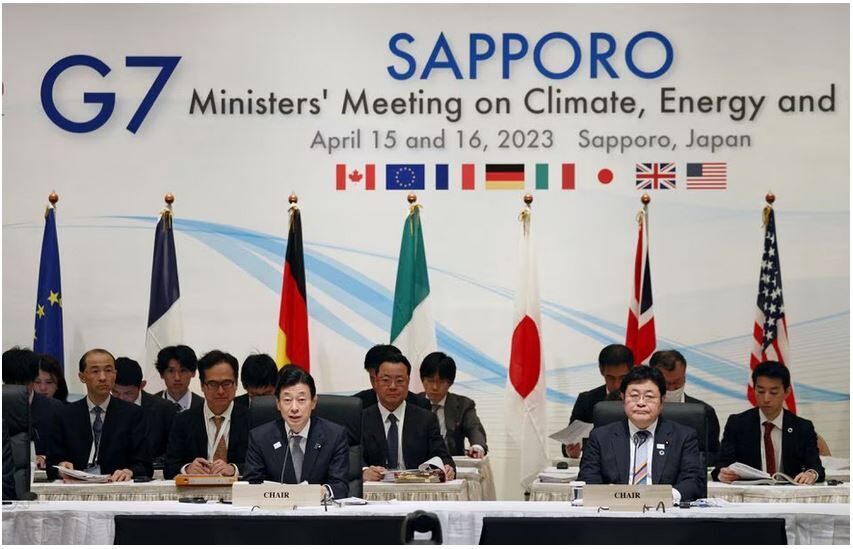G7 environment and energy ministers, however, could not agree on a specific date to exit coal power, France's Agnes Pannier-Runacher told reporters on the first of two days of climate and energy talks in Sapporo in northern Japan, Reuters reported.
"The G7 countries have agreed that the first response to the energy crisis must be to reduce energy and gas consumption… For the first time ever, the G7 said that we must accelerate the phasing out of all unabated fossil fuels... Finally, it sent a message about accelerating renewable energy," Pannier-Runacher said.
The G7 decided to endorse a goal to "drastically increase electricity generated by renewable energies," a person with knowledge of the discussions separately told Reuters, asking not to be identified because the information is not public.
Energy-poor Japan was pushing for investments to stay for the gas industry in order to keep the liquefied natural gas in the energy mix as a transition fuel, winning some – but not all – support from the rest of G7.
"The imperatives on gas supply are only short-term. This implicitly means that we cannot invest in the exploration of new gas capacity," Pannier-Runacher said, adding that nuclear energy is backed by G7 as a "solution for the energy transition" with security of supply.
The event has also put focus on the need to help emerging countries reduce emissions, including through financing.
"We, the G7, need to not only reduce our own emissions but also take concrete actions to achieve emission reductions globally," Japan's Economy and Trade Minister Yasutoshi Nishimura said in his opening remarks, singling out countries in the "Global South".
Nishimura said ministers would like to discuss ways to use finance to help reduce carbon in so-called "hard-to-abate" industries, which include chemicals, shipping and steel.
"On climate finance, we must make a fairer deal for the 'Global South'", said Sultan Al Jaber, the United Arab Emirates minister of industry and advanced technology, told a closed session, according to his remarks seen by Reuters.
"Developed countries first need to follow through on the $100 billion pledge they made to developing countries over a decade ago."
'Stronger leadership'
The issue of emissions in emerging markets has long been a focus for developed countries. However, the world's richest countries need to do more to help emerging nations reduce carbon, said Alden Meyer, a senior associate at E3G, a climate change think tank.
"There's a responsibility for the G7 and other developed countries to provide finance and to mobilise private finance as well to help the decarbonisation of the developing countries," Meyer told a briefing ahead of the start of the G7 meeting.
G7 countries must exert "much stronger leadership" in leveraging financial and technology resources to help developing countries reduce emissions, Meyer said.


Your Comment